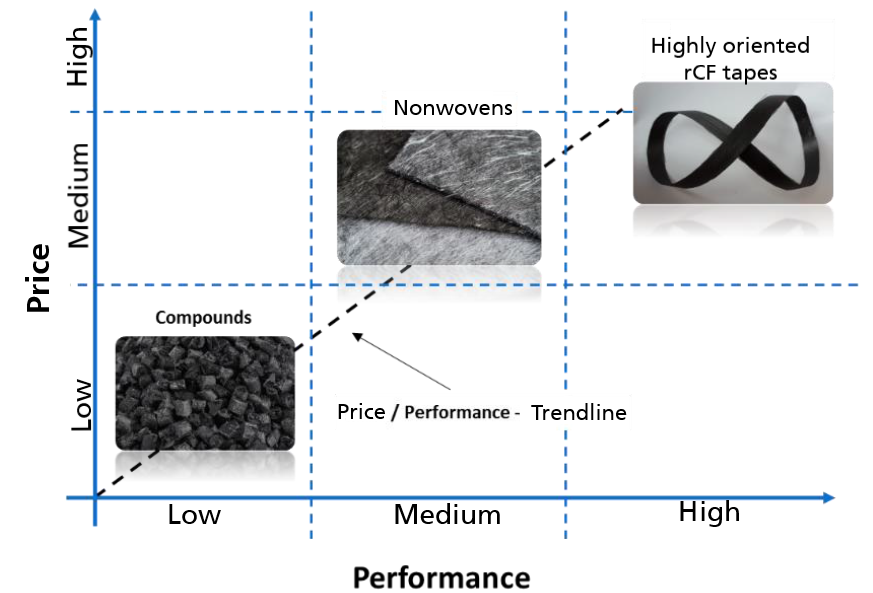Substitution of new material with high-quality recycled products (rCF tapes)
Use of load-path-compatible manufacturing processes.
The use of carbon fiber-reinforced plastics and the associated material efficiency compared with metallic materials play a crucial role in lightweight construction. However, the production of new carbon fibers is based on fossil raw materials and is very energy-intensive and inefficient in using resources. Therefore, the one-time use of this reinforcing fiber is highly harmful to the climate and the environment.
This does not have to be the case: In the »Infinity« project, we are establishing a sustainable process cycle for carbon fiber composite materials.
The »Infinity« project, for example, is implementing an efficient and fiber-friendly recycling process for carbon fibers that can turn this high-value resource back into a semi-finished product for a high-performance application.
